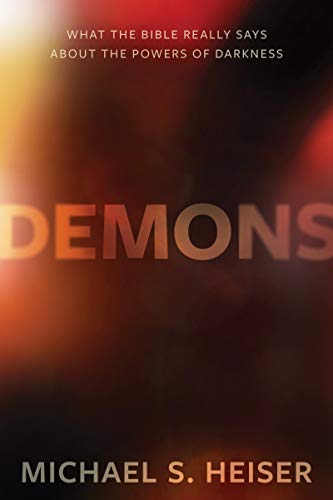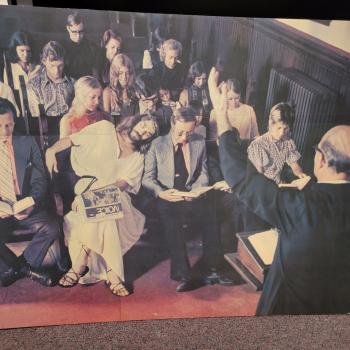BEN: It’s ironic, but it seems clear that even very conservative Protestants don’t just stick to the Bible and its literal interpretation. They have their own traditions that muddy the waters— for instance the Christian Church tradition that the NT rules out using musical instruments in worship, or the Pentecostal tradition that Acts 2 is about speaking in angelic tongues, or the tradition that Ephesians 6 is authorizing deliverance ministries, rather than ‘standing’ and defending against devilish onslaughts. Why do you think it is that even Protestants are blind to how their own traditions skew the reading of the Bible?
MICHAEL: The short answer is the Reformation—really, the caricature of the Reformation that has been ingrained in them. What I mean here is that it’s easy for Protestants to think the Reformation meant turning away from the traditions of men (Catholicism). The unconscious myth is that Protestantism turned away from tradition to some sort of unfiltered biblicism. Protestants presume this either-or choice, not realizing that turning away from one set of traditions didn’t immunize them from creating a body of their own tradition that now serves as an interpretive filter in the same way (but not the same outcomes) as the body of tradition Protestantism left behind. We sort of want to think of ourselves as above the human propensity for creating intellectual communities just like we create physical or cultural communities. Tradition is a human phenomenon. We have to be honest with that and, awareness raised, make intentional efforts to tap into the intellectual framework of the biblical writers, not our own, regardless of the labels we’ve given those frameworks. That takes work, honesty, and humility, etc., and a willingness to stay at it, not presuming we can’t improve on the effort we’re already making. I should add that the cost of doing this isn’t the erasure of one’s traditions. We just need to be honest to the distinction between Scripture read in context and our traditions. The former needs to shape the latter, not the other way around. They can co-exist.

















